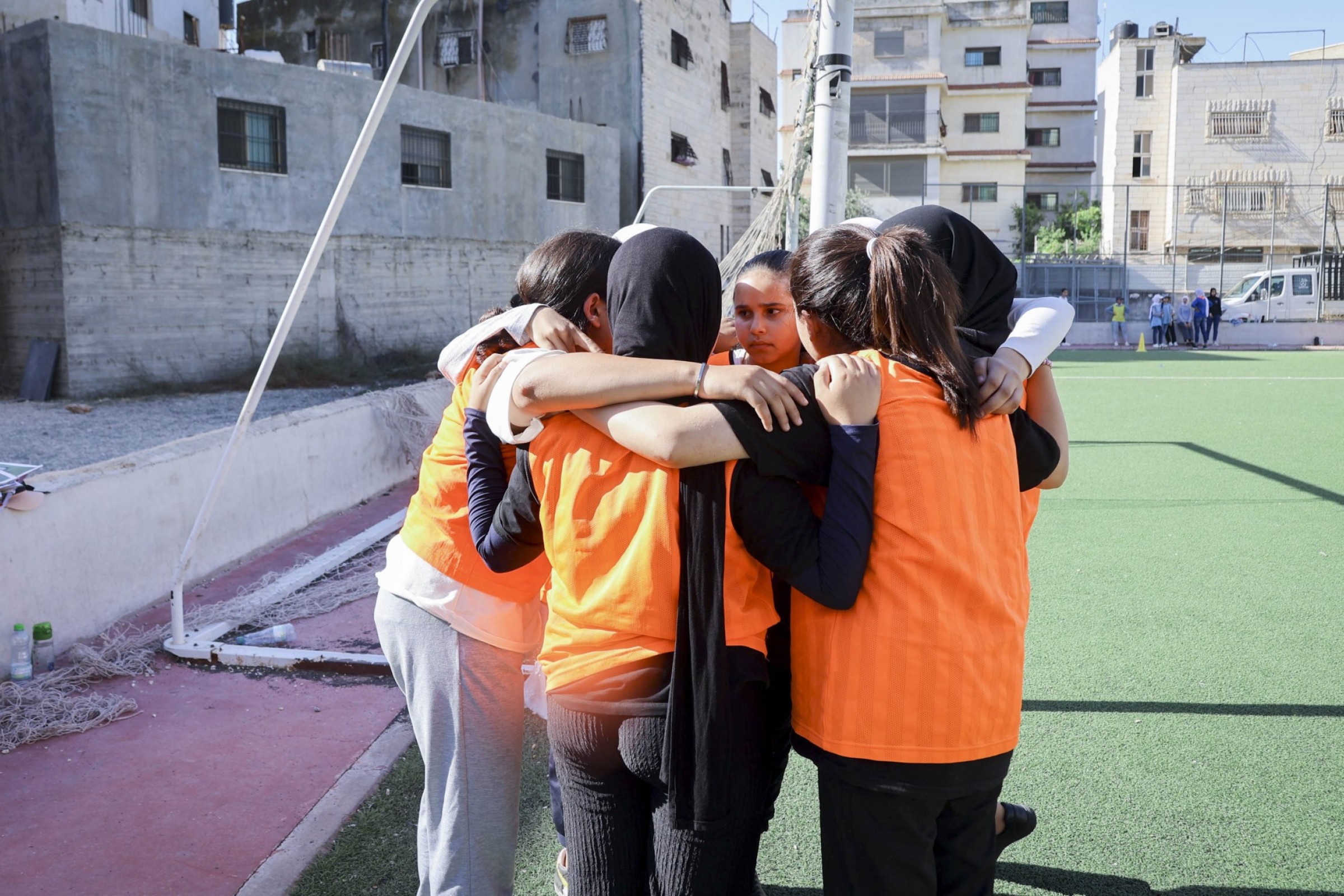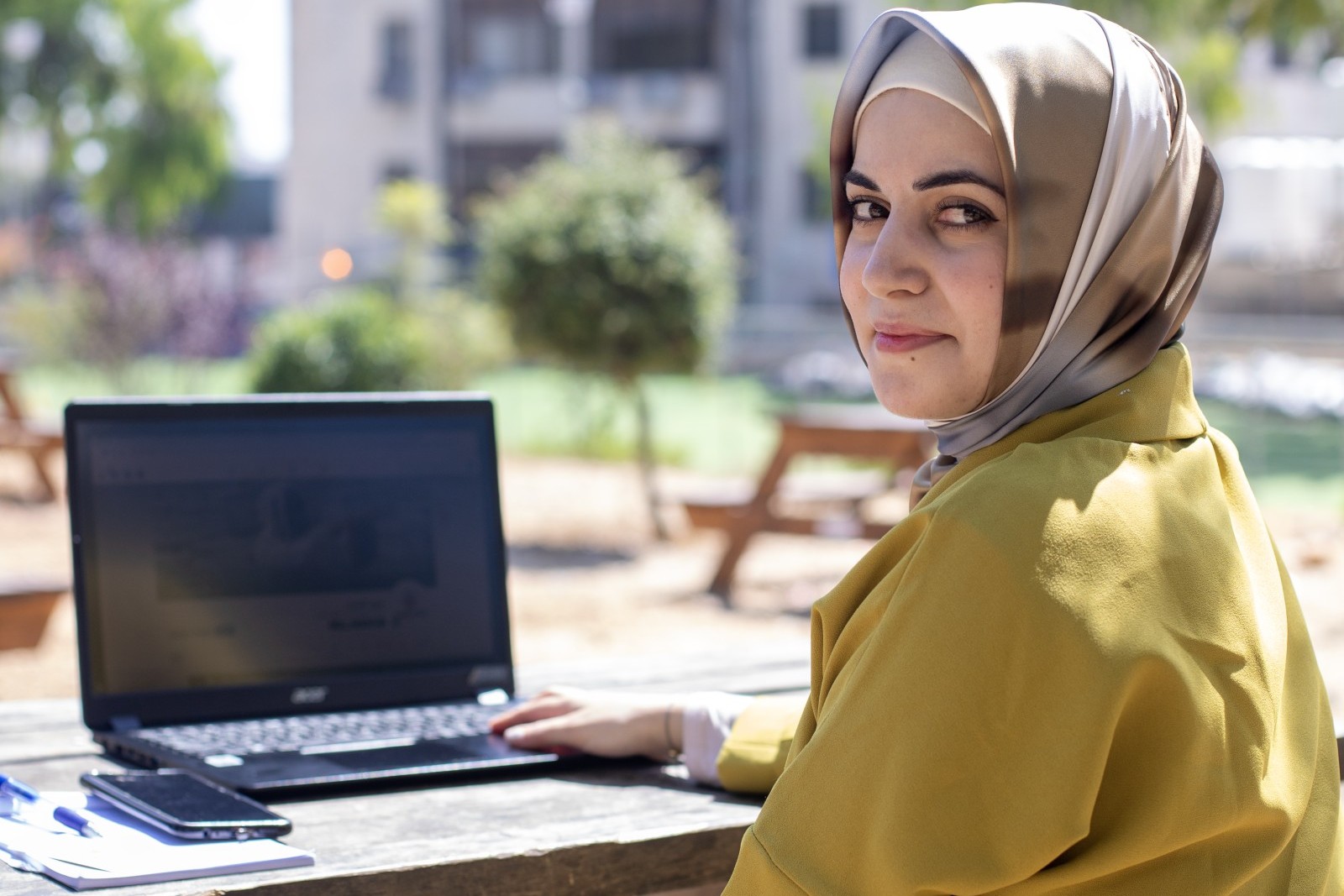Economic and psychosocial empowerment
This page has been automatically translated. The German version is authoritative. Thank you for your understanding.
Women and young people are disproportionately affected by poverty and economic exclusion. Gender-based and structural barriers make it difficult for them to access gainful employment. Frieda promotes economic and psychosocial empowerment with targeted (further) education programmes.
Participating in the economy and earning their own income paves the way for equality, poverty reduction and holistic, sustainable growth. Securing one's own livelihood is a necessary prerequisite for women and young people to be able to participate socially and politically.

Most affected: Women and young people
In fragile and (post-)conflict contexts, marginalised population groups such as women and young people are often economically excluded and affected by poverty. Without earned income or property, women are usually dependent on men. They have little decision-making power within their families. Because they have received no or inadequate education and vocational training, women are underrepresented in the formal labour market in many places. If they want to become self-employed, they often do not receive loans and lack access to markets to sell their products.
The proportion of young people who are neither involved in education nor employment is high in the Frieda programme regions. This particularly affects young women. As a result, they lack prospects and opportunities for social and political participation in the community.
In Switzerland, well-qualified migrant women face structural obstacles such as the non-recognition of foreign diplomas, a lack of language courses, ethnicised and racialised job descriptions, etc. An above-average number of women, many of them with migration experience, work in the low-wage sector. Women who are economically oppressed and exploited and thus financially dependent are more likely to suffer gender-based violence.

What does Frieda do
In the project countries Frieda supports marginalised women and young people with vocational training. As they usually have little schooling and hardly any vocational training or experience, the Frieda projects also enable them to gain practical experience and get to know potential employers. Project participants are also supported in writing job applications, preparing for job interviews and making contact with potential employers. Some projects offer training for their own business and support planned self-employment with financial grants.
With their own income, women gain more independence and prospects for themselves and their children. In addition, a woman's income that supports the family strengthens her position in the family. They can have a say and make decisions, for example on spending and family matters, and they are better respected. Many women have to endure marriages characterised by violence. Only economic independence enables them to break free and create a life without violence for themselves and their children.
In order to combat widespread youth unemployment, Frieda supports young people from marginalised areas through vocational training, for example in tourism, the textile industry, gastronomy or agriculture. In order to strengthen the young people holistically, they are also taught life skills. This includes, for example, effective communication, the ability to communicate in a professional environment, non-discriminatory behaviour, gender equality and self-confidence.
In Switzerland, the «Mira - Compass» project provides well-qualified migrant women with information, establishes contacts and builds new networks in the world of work. The mentees also prepare for their professional careers in Switzerland in workshops and further training courses. All of this helps them to find a job that matches their qualifications. The project also makes migrant women visible as qualified employees and uncovers structural mechanisms of exclusion.
Economic empowerment is one of the pillars of gender equality. Frieda works with a empowerment approach. This strengthens the self-esteem and agency of the individual as well as marginalised groups for collective action. On a macro level, Frieda is committed to abolishing discriminatory laws and structures.
Useful Links
Read more about Frieda's empowerment approach.
More about our working approaches
Here you will find our approaches, including our focus topic economic and psychosocial empowerment.




